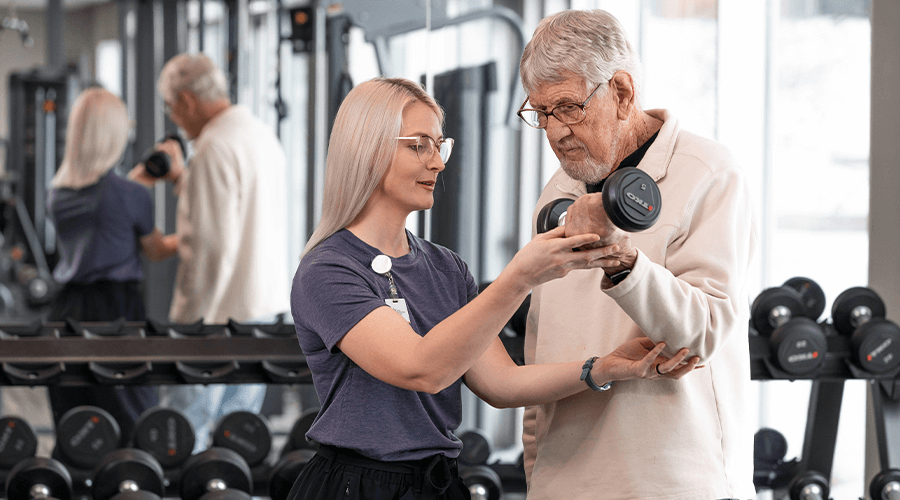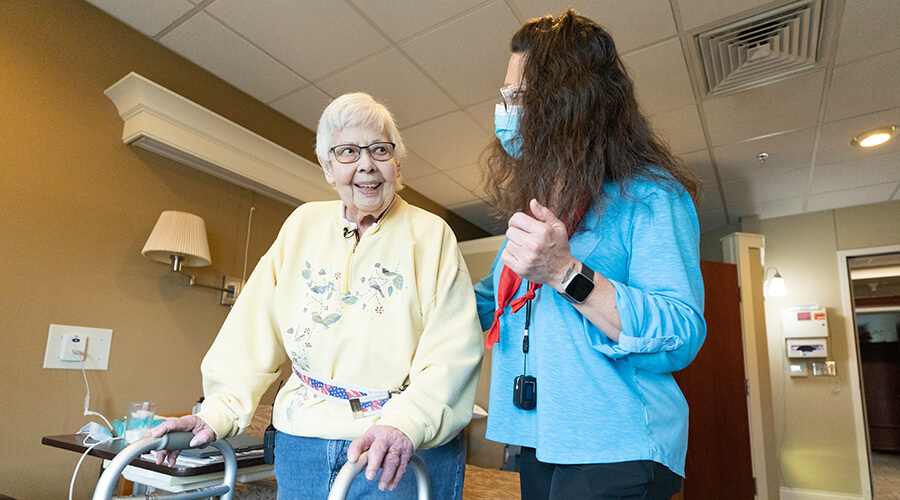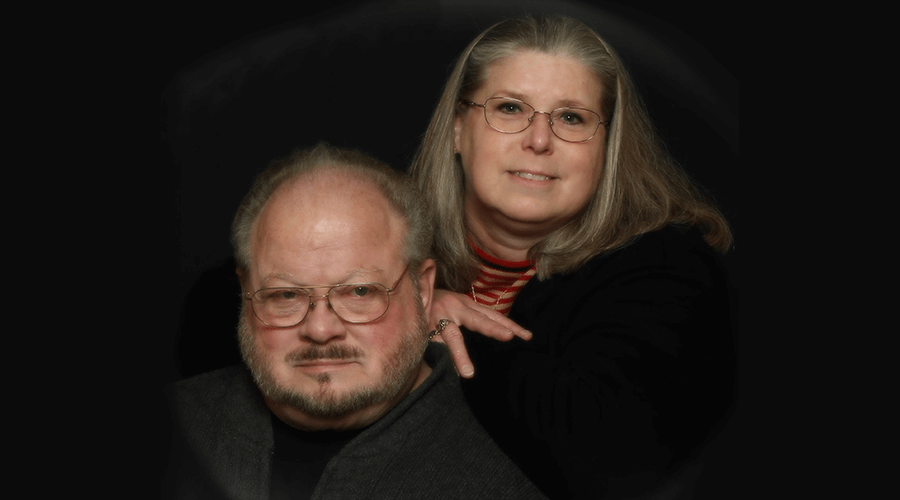Millions of people have had COVID-19 in the United States. The worldwide figure of cases is above the 600 million mark.
Some experience minor symptoms from the virus. Others have been hit hard and are still dealing with lingering side effects to this day.
“Each person has been affected differently from COVID, from weakness to cognitive declines to swallowing deficits,” says Chelshia Davenport, therapy and rehabilitation supervisor at Good Samaritan Society – Fairfield Glade in Crossville, Tennessee.
Creating the Post-Pandemic Rehabilitative Services Program
The Good Samaritan Society has developed an outpatient rehabilitation therapy program to help any patient post-COVID-19, including those with long COIVD symptoms.
The idea came to Toni Hobbs while she was quarantining following a positive COVID-19 test. The therapy and rehabilitation supervisor at Good Samaritan Society – Hot Springs Village in Arkansas felt a calling to do something.
“People are going to be impacted by this, what are we going to do? We as a therapy team need to help these folks,” Toni says.
The team created the Post-Pandemic Rehabilitative Services Program. It aims to bring back a high quality of life to people struggling through a comprehensive therapy plan.
Toni says the program is “for patients who are no longer infected with COVID but they’re still having ongoing side effects.”
‘Steady flow of people coming in’
Speech, physical and occupational therapy may be necessary. Patients can get an assessment for all three at many Society locations.
Bethany Clark at Good Samaritan Society – Mountain Home in Arkansas says residents and members from the community are already taking advantage of the program.
“We started mainly with our residents,” the fitness supervisor says. “There was definitely a steady flow of people coming in.”
The Mountain Home location features the Heinz-Willett Center for Well-Being.
“We have state-of-the-art equipment. We have a warm water therapy pool. It’s a standalone building. Our residents get to come over. The community gets to come over,” Bethany says.
The team at her center is helping residents and patients with “weakness, fatigue, some breathing techniques. I know speech has been involved in some cases.”
‘COVID fog’ and more
Cognitive decline is something Chelshia and her team are seeing in Tennessee. She’s learning a lot from post-COVID-19 patients coming from the hospital to the Society’s inpatient rehab facility.
“We call it COVID fog. A lot of those people come and they have a hard time with cognition. Sometimes it’s adapting to this new normal that they have now,” Chelshia says.
After COVID-19, older adults are often weak, short of breath and at high risk for falls. They are considered to be COVID long haulers.
“They’ve got to take breaks. They’ve got to take their time so they don’t fall,” Chelshia says.
Take it slow and stay active, she says. Therapy professionals at the Society are getting patients stronger and in effect, healthier.
"We’re seeing great recovery rates and we’re excited about that,” Chelshia says.
Help available to anyone
The Post-Pandemic Rehabilitative Services Program isn’t exclusive to people who’ve had COVID-19 either.
If you were stuck at home during the pandemic and haven’t gotten outside the house much since then, Toni says you too might need assistance getting back on your feet.
“We’re seeing a tremendous about of debility amongst our seniors that are not getting out and doing things,” Toni says. “You know that old saying, ‘If you don’t use it, you lose it.’ That really is true. We’ve seen a lot of that with COVID. People have been at home.”
Fewer interactions with others and more time on the couch is not a good recipe for better health. The Society’s therapists will work closely with your primary doctor to get you back on track.
“Cognitive decline, physical decline, the social decline that creates some depression – it’s pretty amazing that we’re seeing an overall decline in function of a lot of people from isolation,” Toni says.
Individual plans
No matter which Society location you go to, staff can tailor a therapy routine to your specific situation. Maybe you need help safely navigating daily activities.
“Basic things such as housekeeping or cooking or paying your bills. All the way to going out and about and shopping and driving,” Toni says. “Not every single patient is exactly alike. We’re going to be looking at each patient’s individualized needs.”
From masks to hand hygiene, Society locations are following CDC guidelines to keep you safe during your visit. Some centers even have private therapy rooms.
“I think over the next few months we’re going to really start to see a big impact of people ready to get better and get back out and about,” Toni says.
Looking for support? You can call a Good Samaritan Society location near you and ask about the Post-Pandemic Rehabilitative Services Program.
“COVID lasts for just a little bit but we can actually help with all those lingering things,” Chelshia says.




![Rehab therapy: Living proof of the healing we provide [video] Rehab therapy: Living proof of the healing we provide [video]](/-/media/project/good-sam/stories/items/meribethheader.jpg?h=500&iar=0&w=940&hash=6A7B48449040E04385FDD57E9EC406CA)